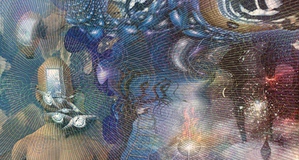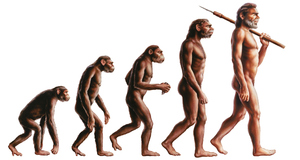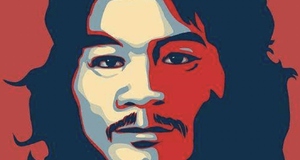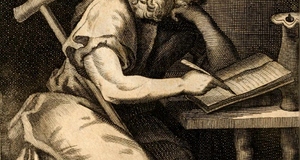The Self-Cognizant Idea and the Methodological Transformation of Hegel, Marx, and Ditlthey's Historiography
By
2021, Vol. 13 No. 03 | pg. 1/1 AbstractThe transformation of the philosophy of history reveals how and why methodological systems change over time. Methodological systems engage in contemplative action, and strive to assemble a distinguishable pattern of historical study. Though structure develops its own epistemology, without a shared notion of collective human experience there would be no collective history to reflect upon. This study maps the changes of philosophic methodology, within the context of historical study, from 1800-1850, but maintains that the action of reflective contemplation remains. The methodological systems of Georg Wilhelm Friedrich Hegel, Karl Marx, and Wilhelm Dilthey, will reveal the discourse of these changes. Uncovering a universal Reason for history may perpetually remain an open question. But for the sake of human connection, we must consider each methodological system as a distinct and necessary reflection of the whole. When methodological systems become dialectically opposed to one another, and cannot see the structure of soil that nourishes both seeds of truth, social upheaval, revolution, and disintegration can be predicted. The unifying principle of contemplative action, or the “self-cognizant idea” (Hegel, 10) is not a position of absolute truth, but serves as a tool for reflective action. Wilhelm Friedrich Hegel (1770-1831) introduces a foundational structure for approaching history in his book Philosophy of History. He begins with “Original History” (1). Original history is a “re-presentation” of the events and experiences that an individual witnesses. It is a record of what has happened, similar to a journal entry. This does not include the ballads or legends of a culture, which is a separate category. The original historian strives to record the exact events witnessed with “life like descriptions” (2). This includes liturgies, speeches and political commentaries. The “authors spirit” (2) is a part of the events and orations that he witnesses and reads, they are “one and the same” (2). How the author re-presents the impressions he witnesses becomes the record. Hegel associates consciousness (thinking), and the historical impressions, with the word “spirit.” He was at his core a Christian Philosopher.1 Spirit, within Hegel’s methodology, comes from and is unanimous with God.2 The job of the historian is to become aware of the God created structures that shape human activity, and methodology.3 The second kind of history that Hegel introduces is Reflective History. Reflective history “transcends the present” (4). The historian looks at the collective history of a country, nation or people that is recorded. This narrative is imbued with the “spirit” of his time and is “quite other than that of the times of which he treats” (5). Reflective history is not an exact representation of what happened. It is imbued with the power of the individual’s reflective thought, different than impression. The historian “brings his categories with him, and sees phenomena presented to his mental vision” (11). The past can be shaped through the individual’s present narrative and becomes “didactic” (6). Hegel is quick to insist that such a rendering of history has often fallen short, and “the pallid shades of memory struggle in vain with the life and freedom of the Present” (6). He uses the example of historians who reframe history to educate, with an individual prerogative. Rather than offering impressions, the historian is offering perspective, and opinion. This would be a form of constructed history. But each reflective historian “insists upon his own spirit” (6), and merely serves their own needs. The final form of reflective history addresses criticism. Hegel notes that the predominant school of history in Germany was to study the “history of history” (7). The Historical critics discover what historians have missed, or the facts that have not been presented. They create criticisms based on the misinformation, or missing facts. Hegel is critical of this way of “doing” (7) history. He remarks “this higher criticism has been the pretext for introducing all the anti-historical monstrosities” (7) which one comes across. Critical history brings out the authors ideas, biases, interpretation or stories that have no credibility, and are not based on historical study, but arise from their own criticism of historical study. The critical historian is not necessarily presenting historical data, but deconstructs old narratives, to arrive at interpretation. The history of ideas is the final system of reflective history, and it studies the Arts, Law, and Religion. These are not observable events, but creations or manifestations of ideas. Hegel presents that the “idea is in truth, the leader of peoples and of the world; and Spirit, the rational and necessitated will of that conductor, is and has been the director of the events of the World’s History” (8). The ideas of humanity will lead the historian towards the “guiding soul” (8) of the peoples, places or attitudes of a time. The Idea4 is the universal substance that history flows through; this is what connects people to a Universal History. The will of the spirit generates this activity, not the will of man; because the Idea, the substance of thinking, comes from and is made by the Spirit, not the material activities of man. Hegel separates the Idea from the subject, through contemplative action. Contemplative action puts the mind through mental gymnastics to arrive at pure thought, rather than subjective interpretation or impression. Hegel prepares the faculties of thinking to become reflexive; so that the objects and structures of thinking can be studied. He trains the mind to observe itself so that meaning is not tied to material projections. It is through this faculty, designed to contemplate the non-material, that true history, Universal History, will take shape. When the mind reflects on ideas, it produces the faculties that allow the individual to contemplate Spirit. He is essentially working as a neuroscientist on the readers mind and training the faculties of thinking for contemplative action and Reason, or awareness of truth. This leads to his Philosophical History. Hegel describes philosophy as an activity that “dwells in the region of self-produced ideas, without reference to actuality” (8). Philosophy is the tool that is used to contemplate history; it is the tool for Reason. Reason is “sovereign of the World” (9). Reason allows us to understand history as a “rational process” (9). Reason is the substance of thinking. Reason is a proper name, not only a thing, but a substance with “its own material” (9) and it “commits to its own Active Energy” (9). Reason is a substance that is not based on a material object, and belongs to language. Reason drives all inquiry. Hegel argues that Reason is the only thing that is true, “absolutely” (9). It reveals itself not only in the faculties of the mind that work to understand the natural and historical order, but it is the force that develops the “phenomena of the natural” (10). The same Reason for why plants grow is the same Reason we contemplate history. If there was no Reason driving the activities of man, or the natural order, there would be no purpose for existence, and no conception of time and history. The present moment would be a continuous revelation with no past. Our thinking is endowed with the same Spirit that exists in the natural world. Hegel essentially states the world is God, and God is the World.5 There is a cause, and a “Reason” for the mind and thinking. And that reason is to reveal God, or the spirit. Contemplative action brings the Spirit into creation, through revelation. This Reason for thinking is only discoverable by contemplative thinking. In order to study any amount of history, one must have faith in this belief. God is only knowable to human beings through Reason, which is the tool designed to know God through. Reason is activated by contemplative action, that is, thinking about thinking. This develops the “self-cognizant idea” (10) a faculty that is aware of its own function, and therefore endowed with the truth of the Spirit. When the historian has developed a “self-cognizant idea” they can begin to formulate history. 6 History is an unfolding of the Spirit, or an unfolding of becoming conscious of Spirit. History is “the exhibition of Spirit in the process of working out the knowledge of that which it is potentially” (18). And the potentiality of thought is described by the notion of Freedom, which is the striving of all human potential.7 Translating the will of God into the language of thought was Hegel’s a priori for the philosophy of history. This is the foundation of Idealism. Hegel’s rational Universe was disassembled by many critics, who believed that the hierarchies of thinking, possessed by the spirit of the old religions, were meant to be dethroned. Karl Marx offered his fervent voice to the criticism of Hegel’s Spirit. Karl Marx (1818-1883) was a monumental individual who radically shifted the discourse of history. In the Writings of the Young Marx on Philosophy and Society, he introduces his system of Historical Materialism, a direct response to Hegel’s “German Idealism” (404). His critique of Hegel, and the introduction to his historical system can be found in the section “The German Ideology: A Critique of the Most Recent German Philosophy as Represented by Feurerbach, B. Bauer, and Stirner” (403). Marx directly addresses Hegel’s philosophic methods. He opens with criticism of men who have “related themselves to one another in conformity with their ideas of God” and that the “phantoms of their imagination have gotten too big for them” (404). The new historian must “rebel against the rule of thoughts” (404), and witness the “rotting away of absolute spirit” (405). For the historian to truly understand the present situation one must “examine the whole spectacle from a standpoint outside of Germany” (506). Marx’s position starts from the outside, and describes an empirical, evidence based, observation of his world. Marx begins his philosophical system with critique. He states that all of his nation’s inquiries “were based on one philosophical system, that of Hegel” (406). He criticises the philosophic bantering of the Hegelians who worship above all else the idea, thinking, rationality and consciousness, which “merely attack the phrases” (406) of this world. The phrases, ideas and methodology trapped in Hegel’s tradition are not real, or essential. This causes a separation of “German philosophy and German reality” (408). It is the “real individuals, their actions and their material conditions of life” (409) which are “substantiated in a purely empirical way” (409) that form history. The conditions for historical study should be verified by experience, and this makes it true. Ideas are not real. They do not exist in the world, and cannot be proven with evidence, therefore irrelevant to study. History is a relational observation of the empirical observable world. The question is: how has man survived thus far, and what do those modes of survival look like? And “all historiography must proceed from these natural bases” (409), because man is a natural creature. Men are therefore defined by how he relates to his natural circumstances. One thing that separates man from other animals is that they make objects and “produce [their] means of subsistence” (409). They grow their own food, make their own tools and build their own houses. Man produces his material existence, therefore his nature and thinking is directly affected by his material activity. Material methodology asserts that consciousness is cultivated by our interaction with the material world.8 How humans organize and divide their labour and production constructs the attitudes, cultures, and traditions of nations and states. The relationship between individuals and the state is determined by material ownership and essentially the power to control the production of materials. History is a transformation of the power of ownership.9 Through the study of the social and political structures of power and ownership the logical unfolding of historical events occurs. Marx’s fundamental argument for the structure of history is that “the production of ideas, of conceptions, of consciousness is directly interwoven with the material activity and the material relationships of men; it is the language of actual life” (414). Historical reason is deeply rooted in the observation and experience of the everyday conditions, circumstances and activities that affect and shape the physical lives of man. If man changes his material conditions, he changes and shapes his mental aspirations, principles and formation of society.10 This approach fuels the revolutionary “communistic materialist who sees the necessity and at the same time the condition of transforming industry as well as social structure” (419). Man sees his own power, through his actions. The foundation of Marx’s system is based on the human need for “eating and drinking, shelter, clothing and many other things” (419). The individual constructs his own mental and social activity by interaction with the world. Language and consciousness comes from the necessity of relationship. Marx describes that “all struggles within the State, the struggle between democracy, aristocracy and monarchy, the struggle for franchise, etc., etc., are nothing but the illusory forms in which the real struggles of different classes are carried out among one another” (425). The true historical process is the class struggle to gain control and power over the material activity of individuals. All historians that followed Marx had to grapple with this powerful transformative logic that negated phenomenology, metaphysics, theology, religion and Idealism, but above all else denied that there was a Divine Spirit. Not only did he transform the structure of philosophical tradition, but his ideas motivated and inspired the social and productive activity of millions of people. Many historians who followed Marx responded to his mighty materialism. One notable attempt to bridge Hegel’s Idealism with Marx’s Materialism, was Wilhelm Dilthey. He poetically preserved and reawakened the tradition of philosophical idealism that Marx so passionately worked to dismantle. Wilhelm Dilthey (1833–1911) presents in Pattern and Meaning in History an “historical being” (Dilthey, 66), which is constructed by the historical process. Human nature is shaped over time by the interactions of language, place and events. The present moment is a culmination of these interactions. Individual inquiry is affected by relative time and place. Their position is a causality of the conditions that came before. Therefore the individual is “historical.” The conditions and framework that shape the present moment derive from the “connections in the mind affected world” (67). The mind generates and produces the framework to view the world, and then observes the framework that has been created. This line of reasoning is Dilthey’s foundation for knowledge, which has its origins in Hegel’s Reflective History. Historical knowledge begins with the study of the interrelated systems that create the underlying assumptions for human nature. The historian must understand the parts of the mind that generate the “construction of the historical course of events” (67). The subject present in this analysis discovers not only his or her place within the system of methodological study, but experiences the causes that affect the historical collective experience. The individual becomes “one with its object, which is the same at all states of its objectification” (Dilthey 68). The historical object of study becomes not only the collective historical object, but the study of the individual self and the causes and construction of the mind. Knowledge of history is formed from inner interpretation which “is inaccessible to the senses and can only be experienced inwardly” (69). For Dilthey this inner narrative makes coherence of outward experience and is the most important object for study. For example, law books, bibles, scripture, ledgers, paintings, artefacts, are all expressions of the mind. These external objects are compared in relation to each other. They are studied in relation to the collective agreement that determines its value. This means that the value of the object is related to the collective agreement of knowledge. Here we find a combination of Hegel’s self-cognizant idea, and Marx’s relationship of value. When the historian views history, they view two processes of the mind, value and relationship.11 Dilthey uses the example of a poet. A poet writes words on the page. Criticism, or history, is not concerned with what the poet is writing about. History is concerned with how the writing connects to the pattern and structure that has already been constructed, and forms the meaning of the poem. The structure and meaning has already been developed, through time. What the poet writes is inherently connected to this pre-existing pattern. The historian uses these structures to reflect on their current historical identity. This creates meaning. These are called “mind created structures” (70). Dilthey is clear in his rejection of only defining man as the product of his material, objective perceptions. If history, which is linked to human structures, was only a physical representation, or an objective study, it would belong to natural sciences. Dilthey shows that “mankind becomes the subject matter of the human studies only because the relation between experience, expression and understanding exists” (71). History is therefore a relational study, which is created by the function of the mind, and the activity of the body. Dilthey’s historical analysis is formed by the relationship of experience, memory, events, and the present moment. Experiences, events and activities do not have meaning without the evaluation of “the mind created structures.” The mind creates “the reconstruction of the course of events in a memory which reproduces not the particular event but the system of connection and the stages of its development” (73). This mental faculty creates historical process, and it affects and causes material activity to take place. However, Dilthey does not leave out the reality of material existence. He acknowledges that “life is the fundamental fact which must form the starting point for philosophy” (73). The function of history is to connect the individual’s experiences, perceptions, and life events into a narrative structure. This is the work of the historian. The structure is the methodology of historical narrative. Meaning arises from the relationship that methodology has to present time. This is considered Relativism. Dilthey has reconciled the Idealism of Hegel with the Materialism of Marx. He reveals the importance of considering the dialectical action of history, and the reflexive qualities of thinking. If there was no prior substance or pattern to place our current perspective in, meaning would not be relational. Relativism offers the subject a framework from which to view historical pattern, thereby revealing their current position. This conversational aspect of history can be carried over into the study of all subjects. The works of Hegel, Marx and Dilthey show that historical philosophy has undergone radical contemplative shifts over a small window of time, roughly 1800-1850, when these men were writing. Philosophy went from the contemplation of God, to material evidence, and finally the constructive powers of reflection and Individual relativism. However, there are underlying similarities that each structure is built upon. Marx’s system can be analyzed through Hegel’s methodology, and reveals certain fallacies of Marx’s paradigm. In order to understand Marx, one must already have pre-existing “self-cognizant” faculties; which his system fundamentally opposes. Marx’s complete rejection of idealism, religion, theology and the rational achievement of man is perhaps his rhetorical downfall, and where he loses his humanity. As Hegel points out in his Critical Reflective History12, Marx’s critical method and complete rejection of Idealism takes the dialectically opposing position to Hegel. This position creates a circular argument, and is actually addressed by Hegel in his description of “matter.”13 Perhaps in the end Marx inadvertently justifies Hegel’s position. Marx is, after all, working within Absolute Material terms. Marx inverses Hegel’s structure and appoints “material” as the “spirit” that moves the “Reason” for history. His logic follows the same pattern that Hegel develops, but changes the rhetorical focus. He does not honour, but actually disregards and rejects entirely, the metaphysical and contemplative mysteries that have offered the groundwork for this methodology. Instead, he asserts that the fundamental Reason or driving force behind human behaviour is Power. Power becomes the moving principle behind conscious activity. This is deeply troubling, but perhaps predicts the inevitable decline of moral and ethical behaviour from the Absolute Materialist position. If we continue with the inverse of Hegel’s logic, Marx’s structure does not see “that man, as man, is free” (Hegel 18) but demands total domination of man through Material Power. Though many have failed to see the similarities of Hegel and Marx, Dilthey in his quiet poetic manner, offered an olive branch to bridge this methodological chasm. Wilhelm Dilthey wrote an offering to reaffirm the value of philosophic contemplative activity, but rooted the structure firmly in the material world and the individual. Dilthey constructed a system where the individual uses the faculties of Idealism and the observations of materialism. Dilthey returns the substance of thought to the object of history. But he leaves the question unanswered whether there is anything beyond individual human cognition that moves and designs this substance. Dilthey defines a constructed historical analysis, one that is not predetermined by the Divine Spirit, but is relative and reflexive to the will of the individual being, and related to their present material conditions. The question as to whether history is determined by a Divine Reason, human material activity or relative constructions of the individual is inconclusive. What can be observed is that new thought structures are created by the activity of “doing history.” These structures formulate and direct our life activity, self-identity, and historical knowledge; they affect our interpretation of material activity, and drive our desire for activity. What drives the activity of thinking and where this activity comes “from” will perhaps only be answered on the other side of life. The modes of human interpretation that pass through the structures of thinking are as varied as the impressions of a dream. Historical beings are trapped by material and social conditions when they believe that these processes are fixed, stagnant, and inaccessible to the will of transformation. Language and thought have profound power on the structure of the universe, and each “thought makes an epoch in the annals of human intelligence” (Hegel, 12). By understanding this, historiographers are able to approach their subject with the tools of knowledge, and produce a “self-cognizant idea.” Whether Marx, Hegel, or Dilthey were “right” or “wrong” is inconsequential. Each individual, through the process of historical contemplation, have outlived their own time and affected the outcome and methodology of history for over two centuries. Each methodology allows the individual to “see the pure light of truth only in various broken rays”;14 but they collectively contribute to the meaning and Reason for History. ReferencesDilthey, Wilhelm. Pattern and Meaning in History: Thoughts on History and Society. Edited by: H.P. Rickman. New York: Harper Torch Books, 1962. Dilthey, Wilhelm. “The Dream.” The Philosophy of History In Our Time. Edited by: Hans MeyerHoff. New York: Doublday Anchor books, 1959. Pp. 35-43. Hegel, George, Wilhelm. The Philosophy of History. Edited By, Charles Hegel. Trans, J Sibree. Kitchner: Batoche Books, 2001. Marx, Karl. Writings of the Young Marx on Philosophy and Society. Edited and Translated: Loyd D. Easton and Kurt H. Guddat. New York: Anchor Books, 1967. Endnotes1.) Wilhelm George Hegel, The Philosophy of History. Edited By, Charles Hegel. Trans, J Sibree (Kitchner: Batoche Books, 2001) C.J Friedrich, introduction. 2.) Ibid, 16. 3.) Ibid, 16. 4.) Idea is capitalized here because Hegel’s system considered the Idea as a proper noun, endowed with “spirit.” 5.) Ibid, 14. 6.) Ibid, 15. 7.) Ibid, 19. 8.) Karl Marx, Writings of the Young Marx on Philosophy and Society. Edited and Trans: Loyd D. Easton and Kurt H. Guddat (New York: Anchor Books, 1967) 419. 9.) Ibid, 421. 10.) Ibid, 419. 11.) Wilhelm Dilthey, Pattern and Meaning in History: Thoughts on History and Society. Edited by H.P. Rickman. (New York: Harper Torch Books, 1962) 70. 12.) Wilhelm George Hegel, 7. 13.) Ibid, 17. 14.) Wilhelm Dilthey, “The Dream,” The Philosophy of History In Our Time. Edited by: Hans MeyerHoff (New York: Doublday Anchor books, 1959) 41. Suggested Reading from Inquiries Journal
Inquiries Journal provides undergraduate and graduate students around the world a platform for the wide dissemination of academic work over a range of core disciplines. Representing the work of students from hundreds of institutions around the globe, Inquiries Journal's large database of academic articles is completely free. Learn more | Blog | Submit Latest in Philosophy |


















